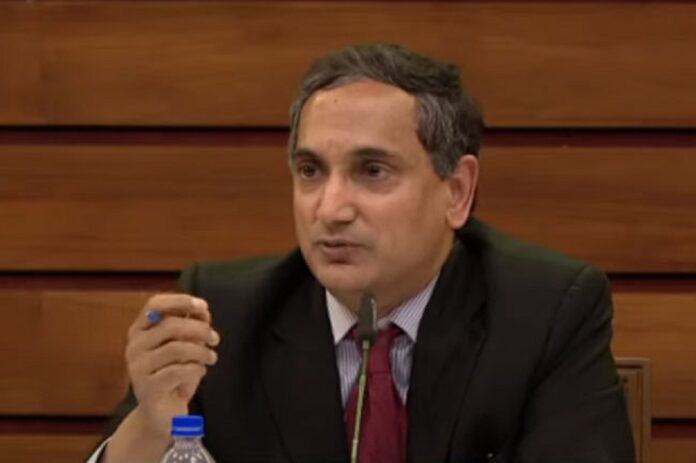By: Staff Writer
Colombo (LNW): Given a weak external environment and domestic policy tightening, aimed at restoring macroeconomic stability, the economy is expected to contract by 3 percent in 2023, before registering a modest growth of 1.5 percent in 2024.
Prospects hinge quite critically on the implementation of the economic reform program says Director of the Asia and Pacific Department of the International Monetary Fund (IMF) Krishna Srinivasan.
He noted that Sri Lanka’s economy is expected to contract by 3 percent in 2023, before registering a modest growth of 1.5 percent in 2024.
Mr. Srinivasan made this remark during a special press briefing in Colombo on Monday (15) with the IMF staff team visiting Sri Lanka.
Sri Lanka is currently negotiating with both bilateral and private creditors in good faith and that the debt restructuring process is expected to be completed before the first review of the EFF program in September or October this year.
He stated that Sri Lanka has been facing a severe crisis because of past policy missteps and back-to-back economic shocks.
“We have been deeply concerned about the impact of the crisis on the Sri Lankan people, particularly the poor and vulnerable groups, and about the economic costs of the delay in the country’s access to external financing.”
On March 20, the IMF Executive Board approved a 48-month Extended Fund Facility of about 3 billion U.S. dollars to support Sri Lanka’s economic policies and reforms.
“This marked an important step towards the resolution of the crisis,” he said. Sri Lanka immediately received an initial disbursement of about $330 from the EFF arrangement, which is expected to catalyze new external financial including from the Asian Development Bank and the World Bank.
He further said: “As you know well by now, the reform program supported under the EFF arrangement is built on strong policy measures and prioritizes five key pillars.
He added that, commendably, Sri Lanka has already started implementing many of the challenging policy actions in these five areas. “
First, an ambitious revenue-based fiscal consolidation, which is accompanied by stronger social safety nets, fiscal institutional reforms, and cost recovery-based energy pricing to ensure the state’s ability to support all its essential expenditures.
Second, restoration of public debt sustainability including through a debt restructuring to ensure stable financing of the government’s operations.
Third, a multi-pronged strategy to restore price stability and rebuild reserves under greater exchange rate flexibility to alleviate the burden of inflation, particularly on the poor, to foster an environment of investment and growth, and to ensure Sri Lanka’s ability to purchase essential goods from abroad.
Fourth, policies to safeguard financial sector stability, to ensure that the financial sector can play its key role in supporting economic growth.
And fifth, structural reforms to address corruption vulnerabilities and enhance growth. Anti-corruption and governance reforms are imperative to ensure the hard-won gains from the reforms benefit the Sri Lankan people.
Sri Lanka is the first country in Asia that has undergone the IMF governance diagnostic exercise.The IMF governance diagnostic report is expected to be published by September this year.

